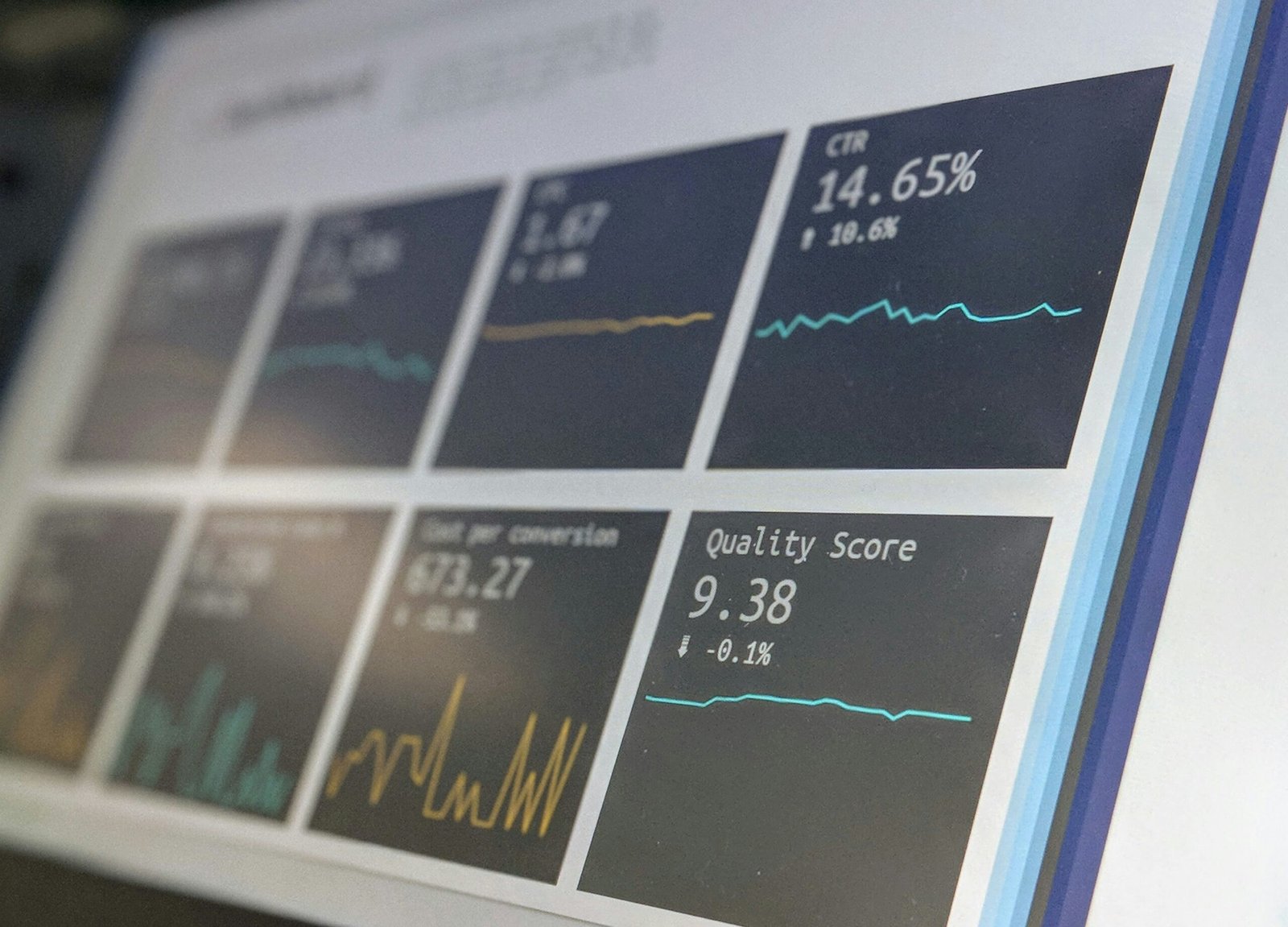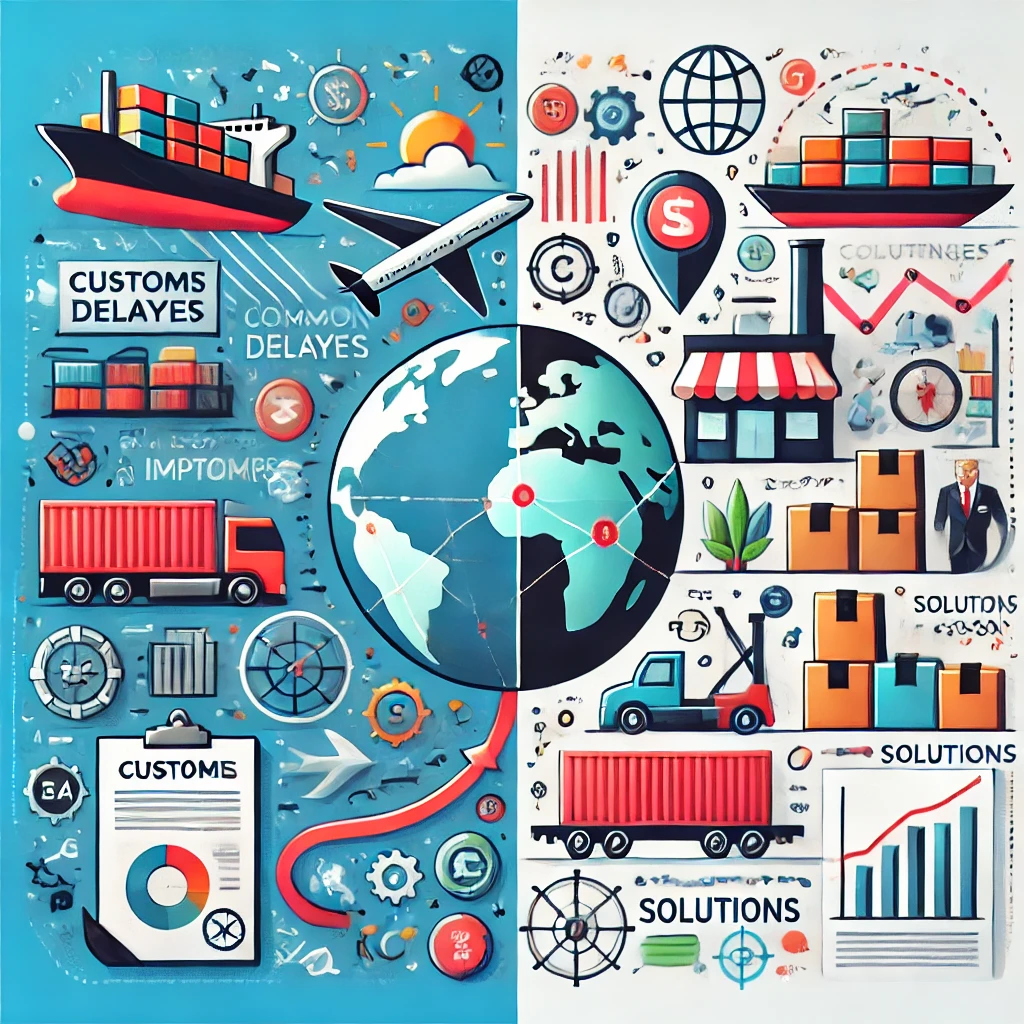Introduction to Data Importers
Data importers play a crucial role in the landscape of global commerce, operating at the intersection of technology and international trade.
Essentially, data importers are entities or platforms that facilitate the transfer of information from one system to another, enabling businesses to access and utilize data from various origins.
As commerce continues to evolve, the significance of data importation has become increasingly pronounced, serving as a backbone for the digital economy.
The rise of data importation reflects the growing need for companies to integrate diverse data sources seamlessly.
In an interconnected world, businesses often rely on multiple data streams to inform their strategies, enhance customer experiences, and improve operational efficiency.
Data importers assist organizations in merging these streams, ensuring that relevant information is available when and where it is needed.
This has emerged as a pivotal component in the global trading system, as it enables real-time decision-making and fosters innovation.
The digital economy heavily relies on data importers to support various sectors, ranging from finance to e-commerce.
For instance, a retailer might use data importers to compile customer data from different platforms, allowing them to tailor marketing efforts effectively.
On a larger scale, data importers contribute to logistical efficiencies by streamlining supply chain management, thus enhancing competitiveness in international markets.
As we delve further into the roles and operations of data importers, it is essential to understand their functions, how they operate within different frameworks, and their impact on trade dynamics.
Overall, data importers are indispensable allies that empower businesses to harness data comprehensively, driving progress within the global economy.
The Role of Data Importers in Global Trade
Data importers play a pivotal role in the landscape of global trade, serving as crucial intermediaries that enable the seamless flow of goods across international borders.
Their primary function is to facilitate cross-border transactions, which often involve navigating a complex web of regulations, tariffs, and procedural requirements.
By ensuring these processes are handled efficiently, data importers contribute to reduced trade barriers, fostering an environment conducive to international commerce.
One of the significant responsibilities of a data importer is to guarantee compliance with local regulations and standards in the destination country.
This involves thorough knowledge of customs regulations, import documentation, and applicable duties and tariffs.
Data importers must remain vigilant in staying updated on changes in these regulations to mitigate potential legal issues for themselves and their clients.
Their expertise allows businesses to avoid costly penalties and ensure the timely delivery of goods, which is essential in maintaining supply chain efficiency.
Moreover, data importers assist businesses in accessing new markets, providing valuable insights into market conditions and consumer behavior in different regions.
By leveraging their established networks and logistical capabilities, these importers can help enterprises identify opportunities in previously untapped markets, ultimately driving growth and diversification in their operations.
This capability is particularly beneficial for small and medium-sized enterprises that may lack the resources or experience to navigate the challenges of international trade independently.
In light of these responsibilities, it is evident that data importers are vital players in the global trading system.
Their ability to facilitate smooth transactions and ensure compliance not only enhances the operational capabilities of businesses but also supports the interconnectedness of the global economy.
By serving as a bridge between markets, they help identify and navigate the complexities of trade regulations, making them indispensable in today’s rapidly evolving commercial landscape.

Types of Data Importers
Data importers play a crucial role in the modern data landscape, enabling businesses to acquire and manage data from various sources.
Understanding the different types of data importers is essential for organizations looking to optimize their data strategies.
Generally, data importers can be categorized into three main types: individual companies, third-party service providers, and specialized platforms.
Individual companies often develop in-house data importing solutions tailored to their specific needs.
These solutions may range from simple scripts that automate the transfer of data from spreadsheets to more complex systems integrated with existing databases.
For instance, a retail company may have its own data importer that facilitates the integration of sales data from multiple stores into a central database for analysis.
The advantage of such systems is that they can be highly customized but may require considerable investment in development and maintenance.
Third-party service providers offer data importing services that enable businesses to easily acquire data without the need for extensive internal development.
These providers typically offer ready-made tools and platforms that help streamline the data import process.
Examples include services like Zapier or Talend, which allow users to connect various applications and automate data transfers.
Such services are beneficial because they reduce the time and resources spent on data management while often providing robust support and maintenance.
Specialized platforms focus exclusively on data importing and data integration, offering various functions and features tailored to specific industry needs.
Companies like Informatica or MuleSoft exemplify this category, providing advanced functionalities such as data transformation and quality control during the importation process.
These platforms are particularly useful for organizations handling large volumes of data across multiple sources, as they ensure data consistency and reliability.
Understanding these diverse types of data importers is pivotal for businesses aiming to enhance their data management practices.
Each type brings its own set of benefits and complexity, making it essential for companies to assess their unique requirements before selecting the most suitable data importer solution.
How Data Importers Operate: Processes and Technologies
Data importers play a crucial role in the modern data ecosystem, utilizing various processes and technologies to efficiently manage data acquisition, processing, storage, and distribution.
The data acquisition process typically begins with identifying reliable sources from which data can be obtained.
These sources may include databases, APIs, web scraping, or partnerships with data providers. Data importers assess the quality and relevance of the data, determining its suitability for the intended purpose.
Once the data has been acquired, it undergoes a processing phase, which may involve cleaning, transformation, and normalization.
Data cleaning ensures that inaccuracies, duplicates, and irrelevant information are removed, thereby enhancing the overall quality of the dataset.
The transformation process converts the data into a standardized format, making it easier to analyze and integrate with other datasets.
Normalization helps to standardize data values, ensuring consistency across various data points.
After processing, the next stage involves data storage. Data importers utilize various storage solutions, such as relational databases, data warehouses, or cloud-based storage systems, depending on their specific requirements.
The choice of storage technology is vital as it influences data accessibility, security, and performance. In parallel, robust security measures are implemented to safeguard sensitive information, adhering to relevant regulations and industry standards.
Finally, the distribution of data imported is managed via various channels, including APIs, dashboards, or reports.
This distribution ensures that stakeholders can access and leverage the data for decision-making and strategic planning.
The integration of specialized tools and software solutions such as extract, transform, load (ETL) processes further optimizes these operations, enhancing the overall efficiency of data importers.
By employing these processes and technologies, data importers fulfill their essential role in the data landscape, driving informed decision-making within organizations.
Compliance and Regulatory Challenges
Data importers encounter a myriad of compliance and regulatory challenges that significantly impact their operations.
One of the primary concerns revolves around data protection laws, particularly those that govern how personal data is collected, processed, and transferred across borders.
Compliance with regulations such as the General Data Protection Regulation (GDPR) in the European Union imposes stringent requirements on data importers, necessitating that they ensure adequate safeguards are in place when dealing with personal information.
Moreover, data importers must navigate customs regulations that require transparency and accurate reporting of data being imported.
This encompasses a thorough understanding of tariffs, import duties, and procedures that govern the entry of goods and data into a country.
Failure to comply with these customs regulations can lead to significant financial penalties, delayed shipments, or even confiscation of goods.
Consequently, data importers are tasked with integrating customs compliance into their overall data management strategies.
Trade compliance measures add another layer of complexity. Data importers must ensure that their operations align with international trade agreements and sanctions.
Non-compliance with these trade regulations can result in severe repercussions, which may include fines, damage to reputation, and legal liabilities.
It is essential for data importers to stay abreast of changes in regulatory landscapes to avoid potential pitfalls that could jeopardize their business operations.
In addition, there is the challenge of ensuring that all employees are adequately trained in compliance protocols.
This entails regular training programs focused on data protection laws, customs regulations, and trade compliance measures to promote a culture of adherence within the organization.
By addressing these compliance and regulatory challenges, data importers can foster a more secure and legally sound operational environment.
The Impact of Data Importers on Businesses
Data importers play a crucial role in the global market landscape, particularly for small and medium-sized enterprises (SMEs) aiming to expand their operations internationally.
These entities facilitate the transfer of data across borders, enabling businesses to access diverse markets and consumer bases.
One of the primary advantages of utilizing data importers is the ability to leverage rich data insights that can inform strategic decision-making and enhance operational efficiency.
By analyzing imported data, companies can identify trends, understand customer preferences, and tailor their offerings to meet specific market demands.
Furthermore, data importers contribute to broader market access, helping SMEs to position themselves competitively on a global scale.
In a world where digital transformation is reshaping industries, the ability to tap into international data streams is increasingly valuable.
This strategic use of data can result in improved marketing strategies, refined product development, and ultimately, increased revenue potential.
By understanding the nuances of different markets through comprehensive data analysis, businesses can innovate and elevate their services, catering to a wider audience.
However, the involvement of data importers is not without challenges. The costs associated with importing data can be significant, particularly for smaller enterprises with limited budgets.
Expenses related to compliance, data storage, and ongoing data analysis can accumulate, placing financial strain on SMEs.
Additionally, businesses may find themselves overly dependent on external data sources, which can lead to vulnerability if those sources change or become unavailable.
Striking a balance between leveraging the advantages offered by data importers and managing their associated risks is essential for sustainability and growth in the competitive international market.
Trends Shaping the Future of Data Importing
The landscape of data importing is undergoing significant transformation driven by several key trends. One of the most critical influences is the advancement in cloud computing technologies.
As businesses increasingly rely on cloud-based solutions, data importers are tasked with managing and consolidating vast amounts of data from diverse sources.
The flexibility and scalability offered by cloud environments allow for efficient data handling, facilitating quicker imports and improved data integration processes.
This evolution enables data importers to respond rapidly to changing market dynamics while maintaining the integrity of their data.
Artificial intelligence (AI) is another trend reshaping the operations of data importers. With the integration of AI technologies, data analysis processes have become more efficient and accurate.
Machine learning algorithms can automate data classification and enhance quality checks, thereby reducing manual intervention and potential errors.
Data importers leveraging AI can derive deeper insights from the imported data, anticipating trends and improving data-driven decision-making for their clients.
Additionally, the expanding realm of data analytics plays a crucial role in the future of data importing.
As organizations transition toward a data-centric approach, the need for accurate and timely data importation escalates.
Modern data importers must provide enhanced analytics dashboards that not only visualize the imported data but also deliver actionable insights.
Such capabilities empower businesses by enabling them to make informed decisions based on real-time data.
Furthermore, the evolving landscape of international commerce introduces complexities that data importers must navigate.
Regulatory changes, trade agreements, and varying compliance requirements across borders impact how data is imported.
Adapting to these dynamics is essential for data importers to thrive in a global marketplace.
As these trends continue to unfold, data importers will need to embrace technological advancements and continually refine their strategies to remain competitive and relevant.
Case Studies: Successful Data Importer Strategies
In the competitive landscape of global trade, data importers have increasingly played a pivotal role in streamlining supply chains, enhancing client service, and overcoming international trade challenges.
These entities harness innovative strategies to meet their operational goals and effectively cater to their clients.
This section delves into real-world examples that highlight the achievements and methodologies of successful data importers.
A notable case is that of Company A, a data importer specializing in electronics.
Faced with the challenge of managing a fragmented supply chain, Company A employed advanced data analytics to gain visibility across its operations.
By integrating a comprehensive data importer software solution, they facilitated real-time tracking of shipments and inventory levels.
This proactive approach allowed them to swiftly identify potential disruptions, enabling the company to mitigate risks and significantly reduce delivery times.
As a result, Company A bolstered its reputation among clients seeking reliable and timely services in a demanding market.
Similarly, Company B focused on sustainable practices while importing textiles and fabrics.
Recognizing the rising consumer demand for ethically sourced materials, this data importer restructured its supply chain to prioritize environmentally friendly producers and suppliers.
By utilizing data-driven decision-making tools, Company B efficiently assessed supplier compliance with sustainability criteria.
This strategic initiative not only attracted a new clientele but also positioned the company as a leader in eco-conscious business practices within the textile industry.
Furthermore, Company C, which specializes in food imports, faced challenges related to stringent food safety regulations.
To address these, they invested in a robust data importation system that incorporated traceability features.
This system enabled Company C to monitor each product’s journey from farm to table, ensuring compliance with safety standards.
By prioritizing transparency through technological advancements, the company gained the trust of both regulators and consumers, further solidifying its standing in the marketplace.
These case studies illustrate how effective data importer strategies, driven by technology and a commitment to client satisfaction, can lead to significant competitive advantages in a dynamic global trade environment.
Each of these companies demonstrates the transformative power of strategic adaptations that address both challenges and opportunities within their respective sectors.
Conclusion: The Future of Data Importing
As technology continues to evolve, so does the role of data importers within global commerce.
These entities, responsible for the seamless transferring of essential information, serve a critical function in facilitating trade, enhancing operational efficiency, and improving decision-making processes.
The current landscape shows an increasing reliance on sophisticated data importers to manage vast volumes of information across various platforms, ensuring that businesses can maintain competitiveness in a dynamic market.
The mechanisms by which data importers operate are becoming more advanced, integrating artificial intelligence and machine learning to streamline the import process.
With the potential to automate data handling and analysis, companies can process large datasets in real-time, transforming the way they approach operational and strategic planning.
This advancement poses intriguing opportunities for businesses, allowing for more agile responses to market changes and consumer demands.
Furthermore, the regulatory environment surrounding data importation is also expected to evolve.
As data privacy and security continue to be significant concerns for organizations, data importers will need to adopt more robust compliance measures.
The development of new regulations may establish stricter guidelines for how data is handled, necessitating ongoing adaptation and innovation within this sector.
In light of these developments, it is crucial for stakeholders to consider areas for further research in data importing.
Potential studies could explore the impact of emerging technologies on the efficiency and reliability of data importers, as well as the implications of global regulatory trends on the industry.
As businesses continue to navigate the complexities of a data-driven world, the functions performed by data importers will undoubtedly be indispensable in ensuring access to quality information, fostering growth, and promoting strategic cooperation among international partners.





No comment yet, add your voice below!